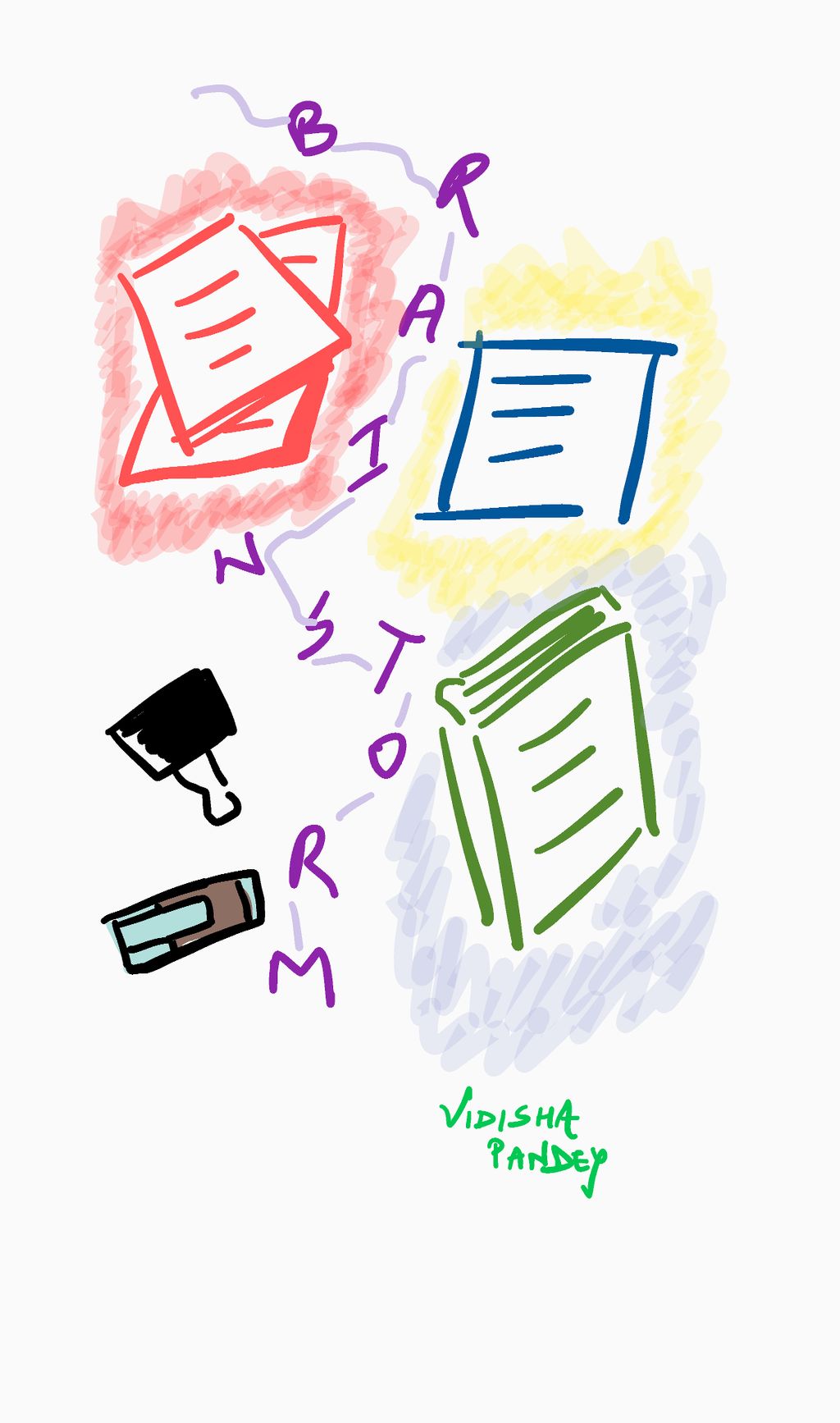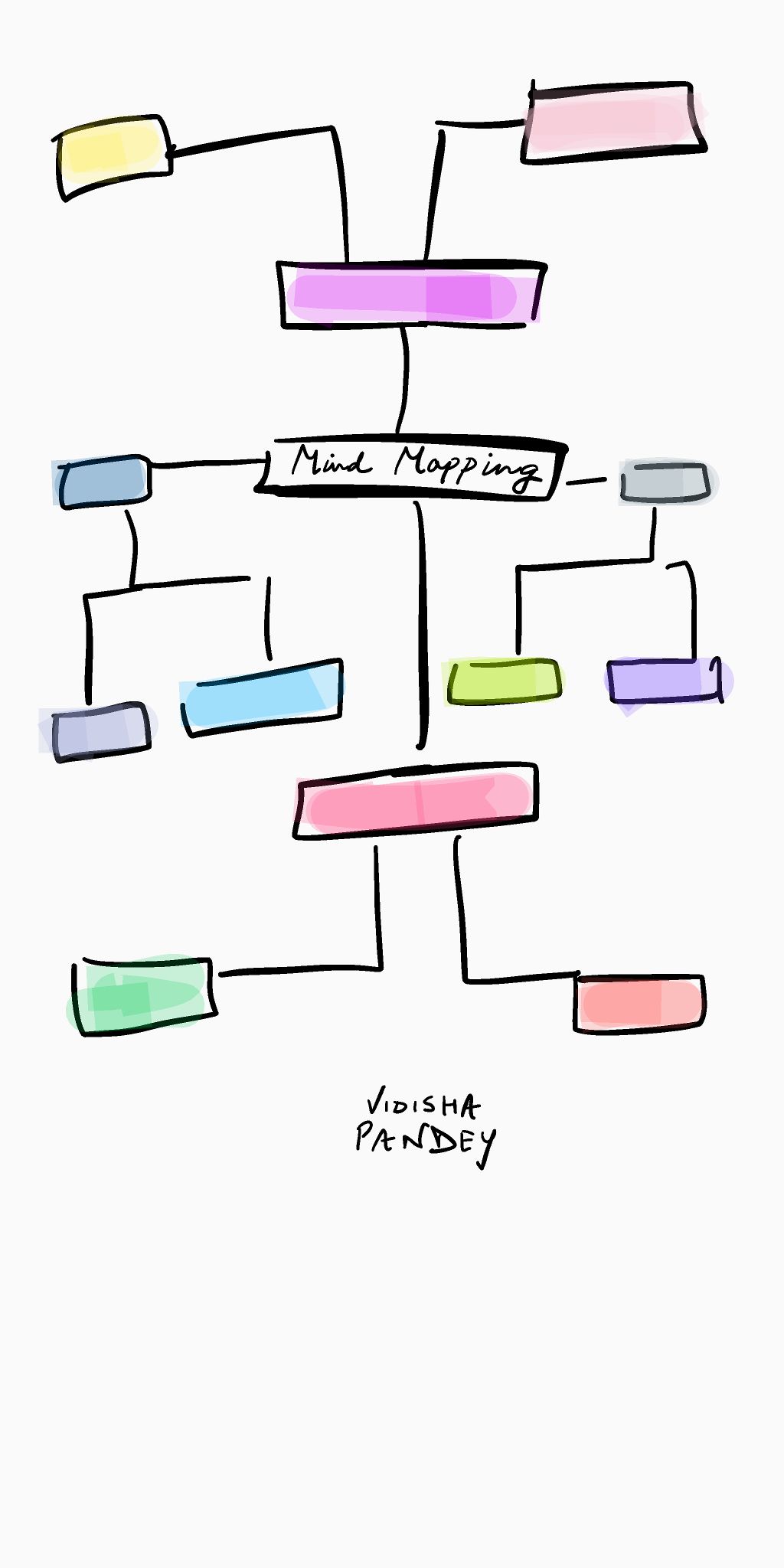Mastering The Art Of Writing
Aug 08, 2019 • 146 views
12 Fundamentals of Writing
You may have already read and heard many advices on this but here I'll put together the pre-requisites that will lay the foundation to develop the noble skill of writing!
Writing-- As simple as it sounds, is one thing and presumably the least obvious thing where a lot of people are prone to make blunders.

That obviously implies that if you're a beginner or a professional for that matter, it is totally okay to feel unsure and undecided with regard to the skill that you'll learn to develop and perfect through the course of this article.
With that note, let's get into it.
Writing is an art that needs to be understood and any form of Art is essentially something that conveys a message in an eye-catching manner.
1. Be thorough with your idea:
You will have to have a clear picture in your head to put it down on paper.
I do understand that creativity happens spontaneously but spontaneity comes from good imagination. Either you can be gifted enough to have a great imaginative power or you'd gain that from experience, both ways the end product remains the same.
Work on maintaining a match between how things look like in your head and how they look on paper.
You definitely can't be overconfident with the idea until you've tried writing it. When you write things, you'll begin to realise the challenge, which may end up being a much more time consuming process than estimated. So if it's a project that you are working on, be althemore in sync.
2. Make Mind maps:

Mindmaps come into play when you have a rough idea about what you need to write. They help you to structure and arrange the different aspects and details of your content.
They also help if you're already clear with your idea but need to revise them for further refinement.
There are several free apps available for Android as well as iOS platforms that provide detailed Mind Mapping templates that you can conveniently use.
Infact if not anything else, softwares as basic as
MS Paint/Word/Excel can help you feed the purpose.
3. Be a passionate reader:
Writing and reading are just as accurately complementary as two trigonometric ratios.
You 'have' to have a zeal for both of them.
Read as much as possible. This is not to merely gain knowledge and act intellectual for the sake of it and it is something that I am sure to tell you.
It is going to make you more open to new ideas, opinions, beliefs and attitudes. It's always going to unleash a new and different perspective for you, even if the subject matter is something you think you know a lot about.
It will also keep you away from plagiarism. Yes that's right. There would be lesser people telling you that reading more will protect you from plagiarism.
Many people believe that reading more content will add biases to what you were believing before and hence affect your final product, that is your write-up which may further be blamed as a piece of plagiarized content by the original writers and their readers of course.
But this is not true.
Reading more will only give you a clearer picture of the topic of concern even if it is through the eyes of another writer and that in no way can change your underlying or basic thought or opinion with regard to 'your' topic of concern (if your opinion/thought was strong enough in the first place for which only you are answerable!)
Don't ignore the fact that its writer has collected his/her experiences and only then acquired the confidence to put it out there for the world to see. So it is never going to be a complete waste of time.
Always remember that-
Nothing is completely true and nothing is completely false. There are n number of details in between that need to be seen through!
4. Fiction and entertainment- Poetry and story writing:
Fiction is like a whole ocean of opportunities in which you are not likely to drown, you can stay there and float (which is appreciable as well) but there's nothing better than surfing through it with a bit of royalty and be recognized for it (artistic licensing/distancing).
(But always remember you can only go fancy in the world fiction and poetry.)
Make it indirect, less obvious and metaphoric.
Try to use different figures of speech (simile/hyperbole/alliteration, etc) to make it more amusing.
Poetry and story writing are basically ways of conveying a message which can be done either while being analogous to the real world or weaving the message through the length of the story/piece of poetry you're writing.
5. Productivity
Also, know that the reader is interested in gaining something out of what he/she reads, so make your work informative enough. The reader should have a purpose to read what you have written.
Even if it's fiction, do not hesitate to put references from popular events/occasions, common/uncommon traditions and rituals and siting examples of famous personalities. Importantly, don't forget to give these people due credit as well!
It should be a learning experience which will make the reader fulfilled and ask for more.
6. Experiment-
Never fear to experiment and play with different genres. Although it is more often recommended for professionals, there is absolutely no major drawback if a beginner tries it as well. For a beginner there is no falling down since they are at stage one and should make full utilization of it.
I'm not trying to tell you that you should keep changing your mind every now and then.But if you think a certain idea demands a little bend of the road, go for it. Avoid fixating the scope of your work. Don't contemplate whether people will or will not try new content. If your work is good, it will make it's way.
7. Non- Fiction and Literature
This is one field where you have to be careful. You can't afford to go wrong with the facts. There's politics in everything. You never know what your content can trigger. If you have strong opinions, have stronger evidences in support of them.
Literature as a field is much more complex than it's definition. Try to read literature of not just your own country but countries across the world.
If you keep that in mind, you are pretty much free to maintain your cloud.
8. Letters/ Applications
Obviously letters can be both formal and informal.
In any case you have to make it look readable. Use simple language no matter how intelligent you are or the receiver of your letter is, everyone wants convenience and it's only going let him/her read it more quickly and act on the subject of your letter or application rather than spending more minutes than required on just understanding your appeal!
Never go wrong with the format. That makes the very first impression. Be sure of the formats accepted by the institution which you are working for. The reader of it should not think at any point, that you didn't have enough professionalism to work on it carefully.
Do not end up making the letter look like a piece of scribble art by slashing and cutting too much which obviously means that you should be good with the spellings and be well-decided as to what you have to convey.
Don't do the paper too many folds. It is not a chit you are passing among your friends in the middle of a lecture.
Also, since in a letter or application (formal ones), people generally want to make an appeal/ give an order/convey a message and they are usually meant for serious matters or something that's urgent, hence try to mention the conclusive point in the beginning of the letter itself and then in later sections of it you can go on explaining the backstory or the background of your appeal. Nobody is going to be patient enough to first empathize with you and in that while wait for you to come to the actual point of discussion!
9. Heading/Title
That is the determining step of the whole process based on which the reader will choose to read your content in the first place.
Of course it is said that " a book shouldn't be judged by its cover" but we all know that human nature overrules smallest and the biggest of things and here it is just a book cover (or the title/subject/heading). So you can never be sure.
You certainly have to put efforts to make it look attractive but it should be in close corelation with the main body of your write-up.
At the same time, you also have to make it a bit indirect and less obvious. This will bring curiousity among the readers.
10.Take care of the context
Be relevant with the generation, time and topic.
You should be detailing your work but should also be knowing what's actually important and what's not.
Since our concern here is to grow ourselves into great writers, we also need to know and acknowledge that--Writing is meant for communication and you need to know that it's really not all about fancy vocabulary. Being a writer, you are not in a position to and cannot prove your skill until you understand the importance of 'Context'. You can surely use brighter words to enhance your work.
11. Humour
Don't confuse humour with always being funny and trying to make things jolly.
Humour means adding wit and being word-smart. It should be something that connects with people and actively engages them into what they are reading.
Whether the content is light- hearted or dark, humour would always act as an icing.
Humour should become a part of who you are.
**It is strictly adviced to not try adding humour to formal letters and applications. This will only make you look unprofessional. Formal work should always be direct and straight forward.
12. Don't make it too confusing-
In the process of trying to make your work be something out of the box, don't accidentally make it go out of the league.
Don't put too many twists and turns to whatever you write. This will only signify that you aren't crystal clear about things. Don't show conflicts every now and then in your work. That'll add conflicts to the reader's mind as well.
Also, don't go far beyond your comfort zone in the beginning. Sometimes, the reader can actually see through your work and get to know that the writer himself/herself is not sure about their work and hence your work can be a tedious read.
That being said, be positive!
Before you please anybody else, you should be completely convinced by the scheme of things yourself. Believe in yourself and your work. Conviction will always convince people. Things aren't that tough if you look at them closely.
Success is sure to come eventually, if you are welcoming criticism and accept it. Also know how to distinguish between constructive criticism and destructive criticism.
- Vidisha Pandey
Blog Banner Courtesy: Own
